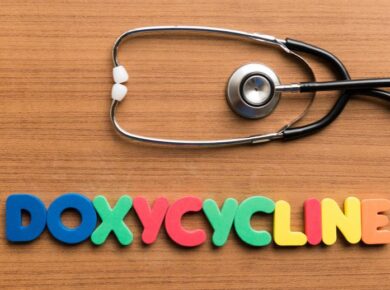Recovery isn’t something that happens overnight. It takes time, effort, and, most importantly, the right kind of support. A lot of people think recovery is just about someone having “enough willpower,” but that’s not really how it works. Willpower is part of it, sure, but without the right people and the right environment, it can feel almost impossible. That’s why having support that actually fits someone’s needs makes such a big difference.
Why Support Matters More Than Most People Think
When someone is trying to stop using drugs or alcohol, their body and mind go through a lot of changes. It’s not just about resisting cravings. There’s stress, withdrawal symptoms, emotions that have been ignored, and sometimes even health issues that need medical attention.
Trying to go through all that alone is not only tough—it can also be unsafe. For example, certain substances can cause dangerous withdrawal symptoms if someone tries to quit without medical help. That’s where professional support comes in. Good rehab centers understand this and create plans that match what each person actually needs instead of treating everyone the same way.
For anyone searching for help, it can feel overwhelming to figure out where to start. Many people begin by looking for a drug rehab near me so they can find a safe place close to home. Having a team that knows what they’re doing makes the whole process less scary and gives people a real chance to succeed.
The Role of Staff in Building Trust
One of the biggest things that sets the right rehab apart is the staff. Doctors, therapists, and counselors aren’t just there to hand out medicine or run sessions. They’re there to listen, guide, and remind people that they aren’t alone in what they’re going through.
A supportive staff can change how someone feels about recovery. If they feel judged or ignored, they might shut down and give up. But if they feel understood and respected, they’re more likely to open up and put in the effort. Trust builds slowly, but once it’s there, it makes a huge difference.
Why Being Around Peers Matters
Support doesn’t just come from professionals. Being surrounded by people who are going through similar struggles can be one of the most powerful parts of recovery. Peer support helps because it removes that sense of being “the only one.”
In group therapy or peer meetings, people share their own stories. Hearing someone else talk about the same struggles can be comforting. It proves that others understand the same feelings, and it shows that recovery is possible. Plus, having peers cheering you on can feel motivating in a way that’s different from family or staff support.
Creating the Right Environment
Recovery is about more than what happens during therapy sessions. The environment plays a huge role too. A safe, calm, and structured place makes it easier to focus on healing. On the other hand, being in a stressful or chaotic setting can make it harder to stay on track.
The right environment balances comfort with accountability. It’s not about being overly strict but about creating routines that support healthy habits. Simple things—like regular meals, good sleep, and access to activities that don’t involve substances—make recovery feel less overwhelming and more doable.
Family Support and Why It Can Be Complicated
Family can be both a source of strength and a challenge during recovery. On one hand, supportive families help rebuild confidence and give encouragement. On the other hand, some relationships may have been hurt by addiction, and trust takes time to repair.
Good rehab programs don’t just focus on the person in treatment—they also involve family members in the healing process. Through family therapy, relatives learn how to be supportive without enabling harmful behavior. This makes the home environment healthier, which helps keep recovery going long after treatment ends.
Recovery Isn’t One-Size-Fits-All
A lot of people believe recovery works the same way for everyone, but that’s not true. Each person has different struggles, strengths, and needs. The right rehab recognizes this and creates personalized plans.
For example, some people need medical detox to safely get through withdrawal. Others may benefit more from therapy that focuses on mental health. Some do better in residential programs where they live at the center for a while, while others succeed in outpatient programs where they can still go to school, work, or care for their family.
What really matters is matching the support to the person—not the other way around.
The Ripple Effect of the Right Support
When someone gets the right kind of support, the benefits go beyond just that person. Families heal, friendships improve, and even whole communities can change. Addiction affects everyone around the person using, so recovery does too.
Support teaches people new ways to handle stress, rebuild trust, and live without needing substances to cope. These changes don’t just help the individual—they also create healthier environments for kids, parents, partners, and friends.
Why Safe Detox Is the First Step
Before the rest of recovery can begin, the body needs to heal from the substance itself. Detox is the process of clearing drugs or alcohol from the body. But doing it alone can be dangerous. Depending on what someone has been using, withdrawal can range from uncomfortable to life-threatening.
That’s why safe detox under medical care is so important. With the right support, symptoms can be managed safely, and people are more likely to stay with the program instead of quitting in fear. Detox isn’t the whole journey, but it lays the foundation for everything that comes after.
Moving From Support to Independence
The goal of recovery support isn’t to make someone dependent on staff or peers forever. It’s about giving them the tools to live on their own, free from substances. Over time, support shifts from being hands-on to encouraging independence.
This might mean learning coping skills for stress, finding hobbies that feel rewarding, or building healthy friendships. Eventually, the person has a new sense of control over their life, and support is there when needed rather than all the time.
Final Thoughts
The right support changes recovery from something that feels impossible into something that can actually work. It’s not just about stopping substance use—it’s about rebuilding life with the right people, environment, and tools. Staff members who care, peers who understand, and families who learn how to support in healthy ways all make the process easier and more effective.
Recovery doesn’t happen in isolation. When the right support system is in place, people don’t just survive without drugs or alcohol—they start to truly live again. It’s the difference between constantly struggling and finally moving toward a future that feels hopeful, stable, and real.
Read Next:
Why Addiction Recovery Anxiety Can Feel Worse Than Withdrawal







